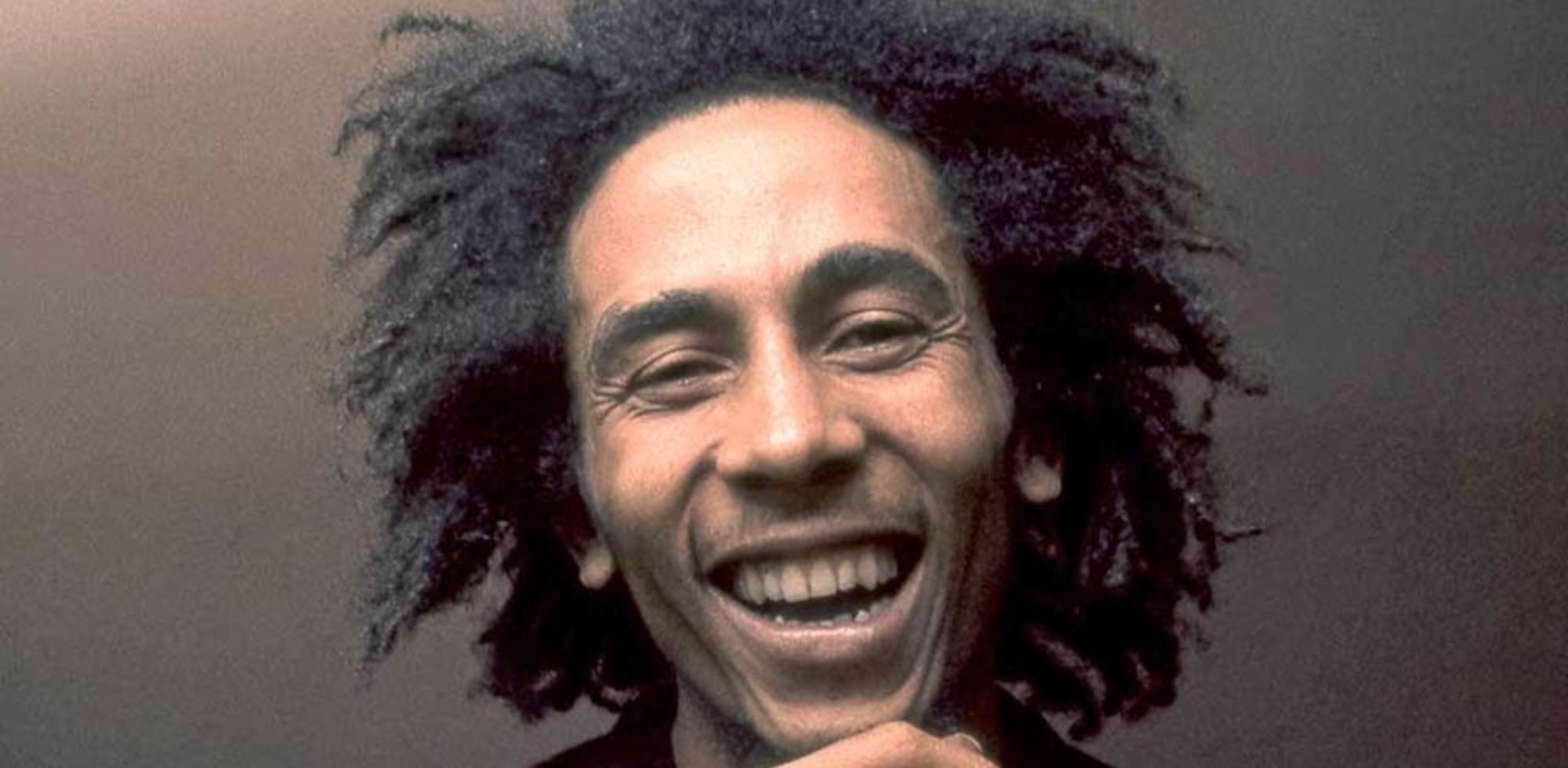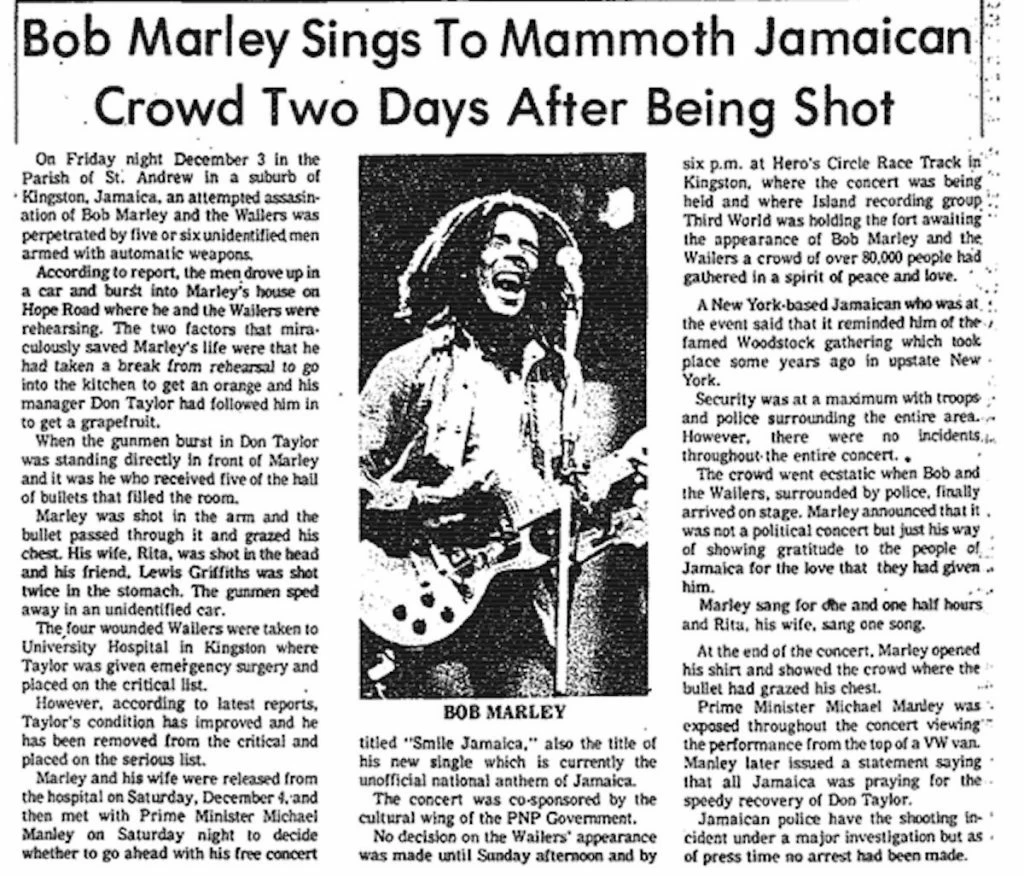Why Bob Marley Died: A Deep Dive Into The Icon's Legacy And Tragic End
Bob Marley is more than just a musician; he's a global symbol of peace, love, and resistance. But why did this legendary reggae artist pass away at such a young age? The story behind his death is as compelling as his music, filled with lessons about health, legacy, and the power of living authentically. If you've ever wondered what really happened to Bob Marley, you're in the right place.
Bob Marley's untimely death shocked the world back in 1981. He was only 36 years old when he left us, leaving behind a legacy that continues to inspire millions. But what exactly led to his passing? Was it something preventable, or was it fate? We're here to break it all down for you, from the medical details to the emotional impact of his loss.
This article will explore the reasons behind Bob Marley's death, diving deep into his battle with cancer, his lifestyle choices, and the medical decisions that shaped his final years. By the end of this read, you'll have a clearer understanding of why Bob Marley died and how his story can teach us valuable lessons about life and health.
Read also:Is Megan Moroney A Liberal Exploring Her Political Identity
Table of Contents
- Bob Marley's Biography
- Early Signs of Health Issues
- The Cancer Diagnosis
- Treatment Choices and Challenges
- Impact of Lifestyle on Health
- Medical Decisions That Shaped His Journey
- Legacy After Death
- Lessons From Bob Marley's Story
- Facts About Bob Marley's Death
- Conclusion
Bob Marley's Biography
Before we dive into why Bob Marley died, let's take a moment to remember who he was. Born on February 6, 1945, in Nine Mile, Jamaica, Bob Marley grew up in a world where music was more than just entertainment—it was a way of life. His journey from a small village boy to becoming a global reggae icon is nothing short of legendary.
Here's a quick breakdown of Bob Marley's life:
Basic Information
| Full Name | Robert Nesta Marley |
|---|---|
| Birth Date | February 6, 1945 |
| Birthplace | Nine Mile, Saint Ann Parish, Jamaica |
| Occupation | Singer, Songwriter, Activist |
| Genre | Reggae, Ska, Rocksteady |
Bob Marley wasn't just a musician; he was a cultural icon who used his platform to spread messages of unity, love, and social justice. His music resonated with people from all walks of life, transcending boundaries of race, religion, and geography.
Early Signs of Health Issues
Bob Marley's health problems didn't appear out of nowhere. In fact, the first signs of trouble began showing up years before his death. It all started in 1977 when he noticed a small wound on his toe that wouldn't heal. At first, he thought it was just a minor injury from playing soccer, one of his favorite pastimes.
But as time went on, the wound didn't improve. Instead, it got worse. This was the beginning of a battle that would eventually claim his life. Looking back, it's clear that early intervention could have made a difference, but Bob Marley's decision to avoid surgery would prove to be a turning point in his story.
The Cancer Diagnosis
After several tests, doctors diagnosed Bob Marley with acral lentiginous melanoma, a rare form of skin cancer. This type of melanoma often occurs on areas of the body with less pigment, like the palms of the hands or the soles of the feet—which explained why it appeared on his toe.
Read also:Discover Corey Feldman Net Worth Age And Personal Life 2023
Despite the seriousness of the diagnosis, Bob Marley refused to have his toe amputated. He believed that his body was a temple and that removing any part of it would go against his spiritual beliefs. This decision, while deeply personal, would later affect his treatment options.
Types of Melanoma
- Superficial Spreading Melanoma: The most common type, often found on the trunk or limbs.
- Nodular Melanoma: A more aggressive form that grows quickly.
- Lentigo Maligna Melanoma: Usually found in older adults, often on sun-exposed areas.
- Acral Lentiginous Melanoma: Rare but aggressive, often found on the palms, soles, or under nails.
Bob Marley's specific type of melanoma is particularly dangerous because it tends to spread quickly if not treated early. Unfortunately, this would become a major factor in his declining health.
Treatment Choices and Challenges
Once the cancer spread beyond his toe, treatment became more complicated. Doctors recommended aggressive therapies, including chemotherapy and radiation, but Bob Marley opted for alternative treatments instead. He sought help from natural healers and relied on herbal remedies, which aligned with his Rastafarian beliefs.
This approach, while rooted in faith and tradition, limited his options for conventional medical care. As the cancer progressed, it became increasingly difficult to manage. By the time he finally agreed to seek traditional treatment, it was too late.
Why Did He Choose Alternative Medicine?
- His strong spiritual beliefs influenced his decisions.
- He trusted in the power of nature and herbal remedies.
- He wanted to maintain his lifestyle and avoid invasive procedures.
While alternative medicine has its merits, in Bob Marley's case, it may have delayed the necessary interventions that could have prolonged his life. This is a lesson many of us can learn from—balancing faith with modern medicine can be crucial in fighting serious illnesses.
Impact of Lifestyle on Health
Bob Marley lived a life that was as vibrant as his music. He was known for his love of sports, especially soccer, and his commitment to his Rastafarian faith. However, his lifestyle also included habits that may have contributed to his declining health.
For instance, his diet wasn't always the healthiest. While he embraced natural foods, he also indulged in occasional excesses that might not have supported his immune system. Additionally, the stress of touring and performing constantly could have taken a toll on his body.
Key Factors Influencing His Health
- High-stress environments from constant touring.
- A diet that wasn't always balanced or nutritious.
- Reliance on alternative treatments over conventional medicine.
It's important to note that Bob Marley's lifestyle wasn't inherently unhealthy. He was a man who lived life to the fullest, and his choices reflected his values. However, hindsight shows us that some adjustments might have made a difference in his battle with cancer.
Medical Decisions That Shaped His Journey
One of the most debated aspects of Bob Marley's story is his decision to forego amputation. While his reasons were deeply personal and rooted in his beliefs, this choice ultimately affected his prognosis. Amputation could have prevented the cancer from spreading, but Bob Marley believed in maintaining the integrity of his body.
As the cancer progressed, he eventually sought conventional treatment, but by then, it had already metastasized to other parts of his body. This highlights the importance of early detection and intervention when dealing with serious illnesses.
What Could Have Been Done Differently?
- Early amputation of the affected toe.
- Regular medical check-ups and screenings.
- A combination of conventional and alternative treatments.
Bob Marley's story serves as a reminder that medical decisions should be informed by both personal beliefs and professional advice. Finding a balance between the two can lead to better outcomes.
Legacy After Death
Even though Bob Marley passed away in 1981, his legacy lives on through his music and the messages he shared with the world. His songs continue to inspire millions, transcending generations and cultures. In many ways, his death only amplified his influence, turning him into a symbol of resilience and hope.
Bob Marley's impact extends beyond music. He was a champion for social justice, using his platform to speak out against inequality and oppression. His legacy reminds us of the power of art to create change and the importance of living authentically.
Lessons From Bob Marley's Story
Bob Marley's life and death offer valuable lessons for all of us. Here are a few key takeaways:
- Early detection is crucial in fighting serious illnesses.
- Balance faith and tradition with modern medical advice.
- Live life authentically, but don't ignore your health.
- Spread positivity and fight for what you believe in.
While Bob Marley's story is tragic, it's also a testament to his strength and spirit. His music continues to inspire millions, and his legacy serves as a reminder of the importance of staying true to oneself while also taking care of our bodies.
Facts About Bob Marley's Death
Here are some key facts about Bob Marley's death:
- Bob Marley passed away on May 11, 1981, in Miami, Florida.
- He was only 36 years old at the time of his death.
- The cause of death was acral lentiginous melanoma, a rare form of skin cancer.
- His final words to his son Ziggy were: "Money can't buy life."
These facts highlight the suddenness and tragedy of his passing, as well as the wisdom he imparted even in his final moments.
Conclusion
So, why did Bob Marley die? The answer lies in a combination of factors, including his battle with cancer, his lifestyle choices, and the medical decisions he made. While his passing was tragic, his legacy continues to inspire millions around the world.
This article has explored the reasons behind Bob Marley's death, shedding light on the medical, personal, and cultural aspects of his story. We hope you've gained a deeper understanding of this iconic figure and the lessons his life teaches us.
Now it's your turn! Leave a comment below and share your thoughts on Bob Marley's legacy. What do his life and music mean to you? And don't forget to check out our other articles for more inspiring stories and insights.


